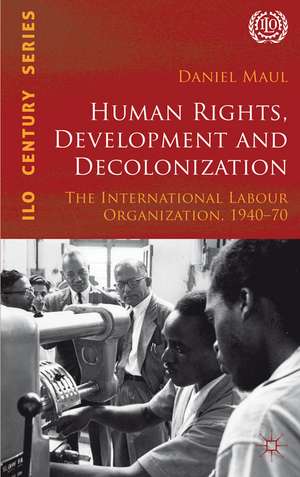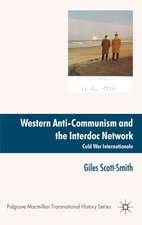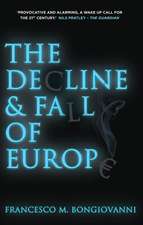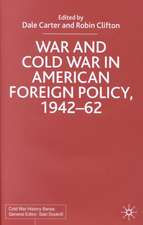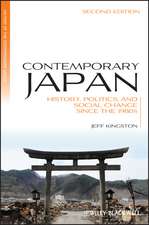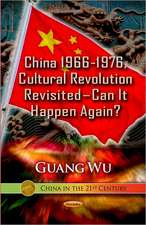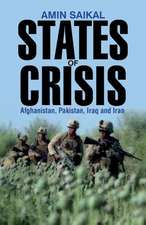Human Rights, Development and Decolonization: The International Labour Organization, 1940-70: International Labour Organization (ILO) Century Series
Autor D. Maulen Limba Engleză Hardback – 27 ian 2012
| Toate formatele și edițiile | Preț | Express |
|---|---|---|
| Paperback (1) | 643.16 lei 43-57 zile | |
| Palgrave Macmillan UK – 2012 | 643.16 lei 43-57 zile | |
| Hardback (1) | 698.94 lei 43-57 zile | |
| Palgrave Macmillan UK – 27 ian 2012 | 698.94 lei 43-57 zile |
Preț: 698.94 lei
Preț vechi: 822.29 lei
-15% Nou
Puncte Express: 1048
Preț estimativ în valută:
133.74€ • 140.01$ • 110.66£
133.74€ • 140.01$ • 110.66£
Carte tipărită la comandă
Livrare economică 07-21 aprilie
Preluare comenzi: 021 569.72.76
Specificații
ISBN-13: 9780230343627
ISBN-10: 0230343627
Pagini: 412
Ilustrații: XVII, 412 p.
Dimensiuni: 152 x 229 x 20 mm
Greutate: 0.48 kg
Ediția:2012
Editura: Palgrave Macmillan UK
Colecția Palgrave Macmillan
Seria International Labour Organization (ILO) Century Series
Locul publicării:London, United Kingdom
ISBN-10: 0230343627
Pagini: 412
Ilustrații: XVII, 412 p.
Dimensiuni: 152 x 229 x 20 mm
Greutate: 0.48 kg
Ediția:2012
Editura: Palgrave Macmillan UK
Colecția Palgrave Macmillan
Seria International Labour Organization (ILO) Century Series
Locul publicării:London, United Kingdom
Cuprins
List of Illustrations Acknowledgements Abbreviations Timeline Introduction PART I: 'A PEOPLE'S PEACE IN THE COLONIES', 1940–47 'The promise of a new earth to till': The ILO's Colonial Work in Exile, 1940–43 A Charter for the Colonies: The Colonies at the Philadelphia Conference, 1944 A New World With New Ideas: The ILO and the Quest for a Colonial Post-war Order, 1945–48 PART II: THE TOOLS OF PROGRESS: THE ILO, 1948–60 Principled Development: The Beginnings of the Technical Assistance Programme (TAP) At Arm's Length: The ILO and Late Colonial Social Policy Universal Rights? Standard-setting Against the Backdrop of Late Colonialism, Decolonization and the Cold War PART III: A GROWING CONFLICT: DEVELOPMENT, HUMAN RIGHTS AND DECOLONIZATION, 1960–70 A New Power: The ILO and the Growing Importance of the Developing World in the 1960s An Intellectual Fashion: Human Rights Standards as a Barrier to Development? Conclusion Appendix I: Selection of Important Conventions and Recommendations, 1930–70 Appendix II: Ratification of Core Human Rights Standards by Country and Date of Ratification (Selection) Sources and Bibliography Index
Recenzii
'Abreak-through in historical scholarship on international politics in the twentieth century in general and on the role of international organizations, human rights and development in particular. It is immensely gratifying to see this excellent book appear in English translation, which makes it available to the large international audience it deserves. A carefully crafted, well-written study, the book will become a standard work for scholars and students in history, political science, human rights and development studies.' - Corinna R. Unger, Jacobs University Bremen, Germany
'This excellent book offers fresh insights into the complex field of international social policy. After difficult beginnings the International Labour Organization became 'a world en miniature', within which a new state order with new nations and new ideas, hopes, and claims for freedom and human rights emerged in the decades after World War II. The ILO shaped the process of decolonization in manifold ways and, as Daniel Maul shows on the basis of much new evidence, helped to establish a discourse of global responsibility.' -Andreas Eckert, Humboldt Universität Berlin, Germany
'This is a rich history for scholars of human rights, international organizations, and development, tightly focused on the ILO but not trapped in the halls of its secretariat.' - Roland Burke, La Trobe University, American Historical Review
'This excellent book offers fresh insights into the complex field of international social policy. After difficult beginnings the International Labour Organization became 'a world en miniature', within which a new state order with new nations and new ideas, hopes, and claims for freedom and human rights emerged in the decades after World War II. The ILO shaped the process of decolonization in manifold ways and, as Daniel Maul shows on the basis of much new evidence, helped to establish a discourse of global responsibility.' -Andreas Eckert, Humboldt Universität Berlin, Germany
'This is a rich history for scholars of human rights, international organizations, and development, tightly focused on the ILO but not trapped in the halls of its secretariat.' - Roland Burke, La Trobe University, American Historical Review
Notă biografică
DANIEL ROGER MAUL Lecturer in the Department of History, Justus-Liebig-Universität Gießen, Germany, and has published widely on the history of globalization and international organizations. He is currently working on a history of international relief in the nineteenth and twentieth centuries.
